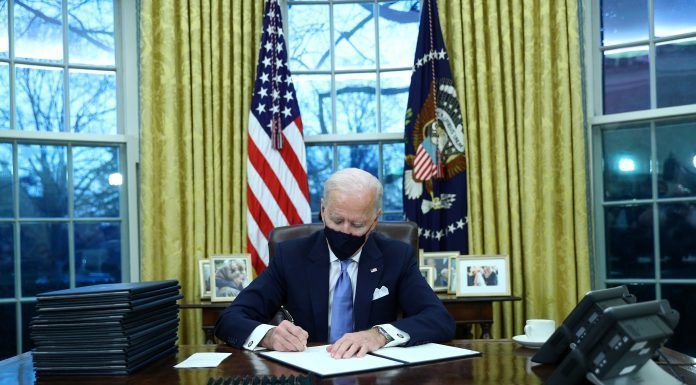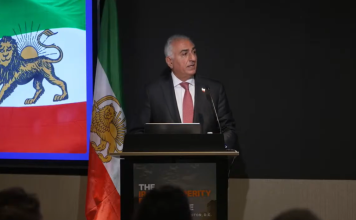By Ahmad Rafat
In recent days, several members of U.S. President Joe Biden’s team have reaffirmed his commitment to rejoining the 2015 Joint Comprehensive Plan of Action (JCPOA), better known as the Iran nuclear deal. However, Mr. Biden has not said when and how he will engage Tehran in a fresh round of talks.
During his Senate confirmation hearing, President Biden’s Secretary of State nominee Antony Blinken said: “Biden’s ultimate aim would be a deal that also limited Iran’s missile program and support for regional proxies.”
Avril Haines, who was confirmed as the director of national intelligence by the U.S. Senate on Jan. 20, reiterated President Biden’s commitment to rejoining the JCPOA, but only after Iran has fulfilled its commitments under the agreement.
“The president-elect has said that if Iran were to come back into compliance, that he would direct that we do so as well,” Ms. Haines, who served as the deputy director of the Central Intelligence Agency (CIA) under former President Barack Obama, said during her Senate confirmation hearing. “And frankly, I think we are a long way from that.”
White House Press Secretary Jen Psaki also reaffirmed Biden’s plan to revive the JCPOA, provided Iran agrees to adhere to the agreement’s articles.
In her first press briefing on Jan. 20, Ms. Psaki said: “The president has clarified that he believes that through follow-on diplomacy, the U.S. seeks to lengthen and strengthen nuclear constraints on Iran and address other issues of concern. Iran must resume compliance with significant nuclear constraints under the deal for that to proceed.”
During her confirmation hearing, the new U.S. Treasury Secretary Janet Yellen seemed to suggest that the sanctions imposed on Iran by the Trump administration would remain in place for the foreseeable future.
“I will ensure that Treasury continues its important work to combat Iran’s support for terrorism and abuse of human rights,” Ms. Yellen, who was confirmed by the Senate on Jan. 22, said.
The Biden administration has several options regarding the JCPOA, but it is unclear which approach it will ultimately adopt.
The U.S. can reverse the Trump administration’s decision to leave the agreement in 2018 and rejoin the JCPOA. Washington would then lift all sanctions it has imposed on Tehran in the past three years. In return, Iran would stop violating articles of the nuclear deal and would come back to compliance. Many Democrats and Republicans in the U.S. Congress and several countries in the Middle East, including Israel and Saudi Arabia, strongly oppose this option.
The U.S. may rejoin the JCPOA after Iran complies with its obligations under the agreement’s terms. This option would include a phased lifting of sanctions.
The more likely scenario is that the Biden team will include Iran’s regional activities and ballistic missile program in any new nuclear talks. This option is a continuation of Trump’s Iran policy, and would probably not result in a new agreement.
Western governments are unclear if Iran’s principal aim is to revive the JCPOA or to have sanctions lifted. Seeking sanctions relief was Iran’s priority throughout the 2015 negotiations, and it has remained so since the U.S. withdrew from the agreement in 2018. Neither the JCPOA nor any other agreement that keeps sanctions in place would solve Tehran’s severe political and economic problems.
If sanctions are not lifted, the severe economic crisis in Iran could pose an existential threat to the Islamic Republic.
If Iran were to agree to include its ballistic missile program and regional activities in a fresh round of nuclear talks, it would lose all power and influence in the Middle East at a time when that power and influence are already much diminished. That is why Tehran continues to insist that the U.S. lift all sanctions before Iran even considers restarting the nuclear talks.
In an op-ed published in the Jan. 22 issue of Foreign Affairs, Iranian Foreign Minister Mohammad Javad Zarif said: “The new administration in Washington has a fundamental choice to make. It can embrace the failed policies of the Trump administration, or [Biden] can choose a better path by ending Trump’s failed policy of ‘maximum pressure’ and returning to the deal his predecessor abandoned.”
“If Washington instead insists on extracting concessions, then this opportunity will be lost,” Mr. Zarif noted. “There cannot be any renegotiations. The United States cannot insist that ‘what’s mine is mine and what is yours is negotiable’ and expect to have its way with Iran”.
“The administration should begin by unconditionally removing, with full effect, all sanctions imposed, reimposed, or relabeled since Trump took office. Iran would reverse all the remedial measures it has taken in the wake of Trump’s withdrawal from the nuclear deal,” Zarif added. “The remaining signatories to the deal would then decide whether the U.S. should be allowed to reclaim the seat at the table that it abandoned in 2018.”
Foreign Minister Zarif knows that his conditions for rebooting the JCPOA will not be received enthusiastically by the U.S.
Meanwhile, British Foreign Secretary Dominic Raab and French Foreign Minister Jean-Yves Le Drian have reportedly told U.S. Secretary of State nominee Antony Blinken and National Security Advisor Jake Sullivan that the White House must seize the moment and return to the JCPOA before the forthcoming Iranian presidential election in June.
Blinken has said that the U.S. will consult its regional allies before deciding about the JCPOA. Israel and Saudi Arabia, the principal U.S. allies in the region, oppose the U.S. rejoining the nuclear deal. They insist that any talks must include Iran’s ballistic missile program and regional activities.
An unnamed senior Israeli government official told the Tel Aviv-based Channel 12 news: “If Biden adopts Obama’s [JCPOA] plan, we will have nothing to talk about with him.”
This article was translated and adapted from Persian by Fardine Hamidi.
[contact-form][contact-field label=”Name” type=”name”][contact-field label=”Email” type=”email”][/contact-form]









